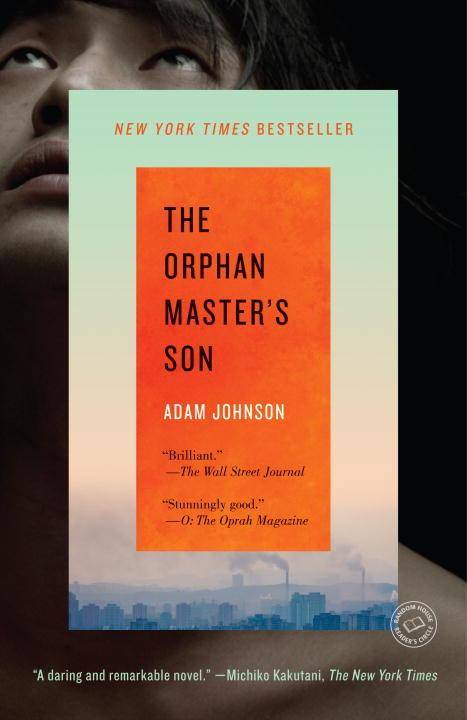If you were taking one of those free-association tests, and the tester asked your response to "North Korea," what words and pictures would come to your mind? For most, I suspect it's nameless, faceless workers wearing identical clothing, haircuts and Party badges, living in primitive conditions under the most paranoid, repressive regime imaginable, where the only citizen allowed to be an individual was that short man with the odd jumpsuits and pompadour; i.e., the late "Dear Leader," Kim Jong II. I also think of the photograph of the world at night that so graphically shows North Korea's exclusion from the simple comfort of light.
Jun Do's life, threading through this book, is one of astonishing hardship, pain and endurance. He is a soldier, an intelligence on board a fishing boat, a prisoner in a work camp and a torture facility, member of a diplomatic mission, and a man who manages to find love and freedom in a most unlikely way. Through this story of his life, the story of contemporary life in North Korea is revealed in all its black-is-white totalitarian craziness. But author Johnson paints such a detailed picture of how the regime operates that we are able to understand how its subjects succumb to the relentless propaganda and repression. Several times, characters profess horror about the fact that Americans must pay for everything and that they lack the protection and safety of having the government tell them what to do in every aspect of their lives. Jun Do says he doesn't think he could ever feel free in the US; that everything in North Korea makes simple, clear sense and it's the most straightforward place on earth.
 The book can be confusing, as it jumps from one narrator to another, one time period to another, one style to another, with no explanation. But it's so vividly written, I didn't worry about the shifts and came to enjoy the crazy-quilt style. In an interview of Adam Johnson by author Richard Price, Price describes the book as a collision of many genres: bildungsroman, prison narrative, sea story, romantic drama, escape thriller, comic picaresque, Korean heroic opera. I'd have to add in agitprop to make a complete listing of the genres represented. I didn't feel it was necessary to have an explanation of why it's written this way, but it was still interesting to hear Johnson's answer that he sees the book as a "trauma narrative," in which a survivor of traumatic experiences tells stories that are similarly disjointed and that "bend and mix genres as characters attempt to patch their stories back together using the stories they find around them."
The book can be confusing, as it jumps from one narrator to another, one time period to another, one style to another, with no explanation. But it's so vividly written, I didn't worry about the shifts and came to enjoy the crazy-quilt style. In an interview of Adam Johnson by author Richard Price, Price describes the book as a collision of many genres: bildungsroman, prison narrative, sea story, romantic drama, escape thriller, comic picaresque, Korean heroic opera. I'd have to add in agitprop to make a complete listing of the genres represented. I didn't feel it was necessary to have an explanation of why it's written this way, but it was still interesting to hear Johnson's answer that he sees the book as a "trauma narrative," in which a survivor of traumatic experiences tells stories that are similarly disjointed and that "bend and mix genres as characters attempt to patch their stories back together using the stories they find around them." This is one of the most unusual, riveting, touching and unforgettable books I've read.
This is one of the most unusual, riveting, touching and unforgettable books I've read.The Orphan Master's Son became available in trade paperback on August 7, 2012, issued by Random House Trade Paperbacks. It is also available in hardcover, ebook and audio formats.
Note: I received a free review copy of The Orphan Master's Son. A version of this review appears on the Amazon product page, under my Amazon user name.





No comments:
Post a Comment